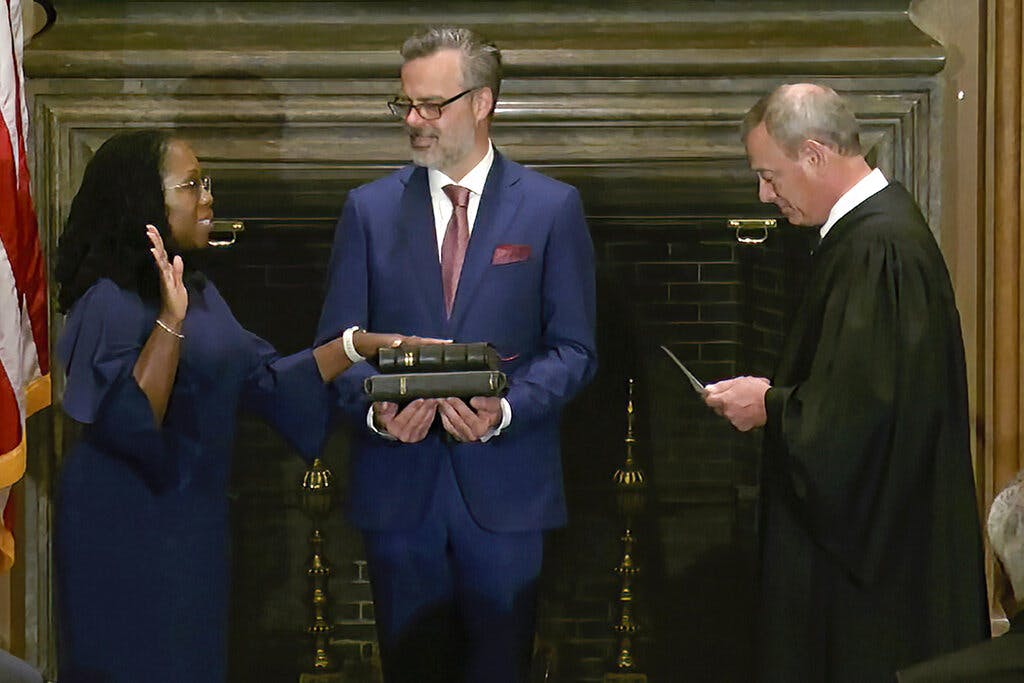Federal Regulators Overstepped in Pursuing Climate Change Agenda, High Court Rules
The Clean Air Act does not give the EPA the right to try to curtail greenhouse gas emissions. Only Congress enjoys the power to make decisions of such economic and political significance.

The Supreme Court has dealt a major blow to the power of federal regulators, ruling on Thursday that the Obama-era Environmental Protection Agency overstepped its authority when it attempted to discourage utility companies from using fossil fuels to generate electricity and instead adopt clean-energy alternatives such as wind and solar.
In a six-to-three decision, the court ruled in West Virginia v. EPA that the decades-old Clean Air Act does not give the agency the right to try to curtail greenhouse gas emissions from power plants by shutting down facilities that burn coal and natural gas. Only Congress, the court ruled, enjoys the power to make decisions of such economic and political significance.
“Capping carbon dioxide emissions at a level that will force a nationwide transition away from the use of coal to generate electricity may be a sensible ‘solution to the crisis of the day,’” Chief Justice Roberts wrote in the majority opinion. “But it is not plausible that Congress gave EPA the authority to adopt on its own such a regulatory scheme.”
The decision is a considerable setback for the Biden administration in pursuing its stated goal of reducing carbon dioxide emissions to address climate change. In the dissenting opinion, Justice Elena Kagan shared the dismay expressed by environmental activists across the country following the decision.
“Today, the Court strips the Environmental Protection Agency of the power Congress gave it to respond to ‘the most pressing environmental challenge of our time,’” Justice Kagan wrote.
The ruling is further evidence of the conservative majority’s skepticism of allowing non-elected regulators to make decisions with significant consequences for the country. Similar decisions were issued this term relating to the power of the Centers for Disease Control to issue eviction moratoriums and the power of the Occupational Safety and Health Administration to compel companies to vaccinate their workers against Covid.
The question before the high court centered on a 2015 effort by the EPA, dubbed the Clean Power Plan, to issue sweeping regulations across the energy sector. The court was asked to decide just how explicit Congress must be when passing bills such as the Clean Air Act and how far agencies like the EPA can go in interpreting laws passed by the legislature.
At its heart, the ruling addresses what the Supreme Court has called the Major Questions Doctrine, which holds that if Congress wants to give an agency the power to make “decisions of vast economic and political significance,” then it must say so explicitly instead of passing broad legislation that agencies can interpret as they see fit.
Senator Cramer, Republican of North Dakota, whose state was a party in the lawsuit that led to the ruling, said that had the Clean Power Plan been implemented, it would have stripped states of their right to regulate greenhouse gas emissions and forced on them national standards devised by regulators at the EPA.
“The Supreme Court decision reflects the separate, co-equal roles of our government,” Mr Cramer said. “Important national policies must be debated and established through the democratic process by elected officials, not Washington bureaucrats.
“Nothing in the Clean Air Act allows the bureaucracy to overstep the State’s authority to determine how they generate electricity,” he said.
Democratic lawmakers, however, were outraged by the ruling, insisting that it will prevent the federal government from acting to curb climate change and enforce environmental laws.
“Just like last week’s dangerously misguided and abhorrent decisions on gun safety and abortion, the extremist MAGA Court’s ruling today in West Virginia v. EPA will cause more needless deaths — in this instance because of more pollution,” Senate Majority Leader Schumer said following the decision.

